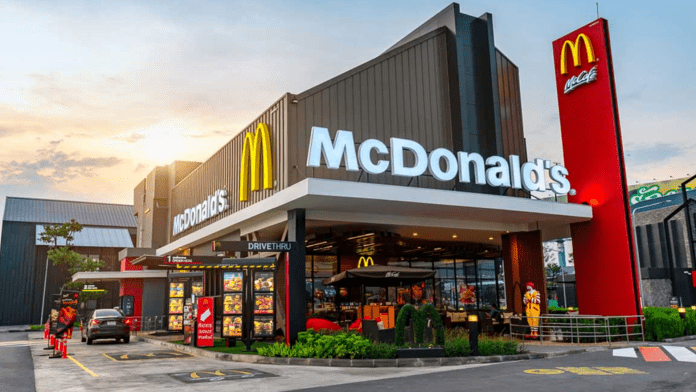McDonald’s bold move to assume more authority over its operations in China and pursue robust expansion amid a backdrop of diminished consumer activity and geopolitical challenges appears to carry risks. However, analysts emphasize that the potential rewards could be substantial.
Last month, McDonald’s successfully concluded a deal to reclaim the 28% stake in its China business that the Carlyle Group had acquired in 2017. This strategic move elevated McDonald’s ownership to 48% in a business valued at $6 billion, spanning operations in Hong Kong and Macau.
Read More: McDonald’s moves to buy 28% stake in Chinese operations from Carlyle
This decision starkly contrasts with the current trend among multinational corporations, which often involves scaling back investments in China or exiting the market entirely due to the challenges posed by geopolitics and the economy.
McDonald’s enjoys a notable advantage due to its majority partner in the China business, CITIC, which offers high-level political support, as noted by Jason Yu, the Greater China Managing Director of the market research firm Kantar Worldpanel.
“Having a very powerful Chinese state-owned conglomerate as a partner means they are not going to be at the forefront of the geopolitical situation; that is quite important,” Yu said.
McDonald’s China, Carlyle Group, and CITIC all refrained from providing comments.
Several other U.S. consumer-oriented companies, such as Starbucks, Apple, Tapestry (owner of Coach), and the sportswear giant Nike, have demonstrated a comparable commitment to the Chinese market.
Analysts suggest that Starbucks and Nike, confronting heightened competition from more affordable domestic rivals, underscore the importance of maintaining agility to safeguard and expand their market share.
The coffee behemoth adheres to its expansion strategy and introduced a smaller cup size, while in contrast, Nike has introduced localized, premium sneakers like the “Year of the Rabbit” Dunk Lows.
Utilizing funds from the Carlyle investment, McDonald’s has doubled its restaurant count since 2017 to reach 5,500, making the country its second-largest market. The company’s objective is to exceed 10,000 stores in China by the year 2028.
McDonald’s competitors are also extending their presence in China.
Yum China, the operator of KFC and Pizza Hut, among other brands, boasts a network of over 14,000 stores nationwide. Among domestic contenders, the chicken burger specialist Wallace announced in 2021 that it had achieved a presence in 20,000 stores, while the newer entrant Tastien, focusing on “Chinese-style” burgers, has established a presence in over 3,500 stores.
Certainly, Greg Halter, Director of Research at the investment advisory firm Carnegie Investment Counsel, pointed out that if relations between China and the West deteriorate, any sense of optimism could dissipate.
“If tensions deteriorate, we may see not only McDonald’s, but other companies divest their Chinese operations, similar to what has occurred in Russia over the past two years,” Halter said.
Yu emphasized the necessity for additional digitization and localization, highlighting that the key to capturing the palate in China’s $140.2 billion limited-service restaurant sector lies in effective localization.
While the McDonald’s China menu remains recognizable to U.S. consumers, there are subtle adaptations to cater to local preferences, such as offering a taro pie instead of the traditional apple pie.
Euromonitor projects that the market value of limited-service restaurants in China is poised to experience an average annual growth of approximately 4% through 2025. Among the limited-service burger-focused establishments in the country, McDonald’s stands out as the dominant player, commanding a substantial 70% share of the market.
Despite the challenges posed by China’s decelerating economic growth and subdued consumer spending this year, global businesses reliant on its consumer market have experienced financial setbacks. However, Ben Cavender, the Managing Director and Head of Strategy at China Market Research Group in Shanghai, asserts that McDonald’s is positioned favorably to surpass these challenges and outperform in this environment.
He noted that businesses like McDonald’s stand to benefit from a value-driven middle class and lower commercial rents throughout the country.
“If ever there was a time to double down on China, this is it,” he said.





